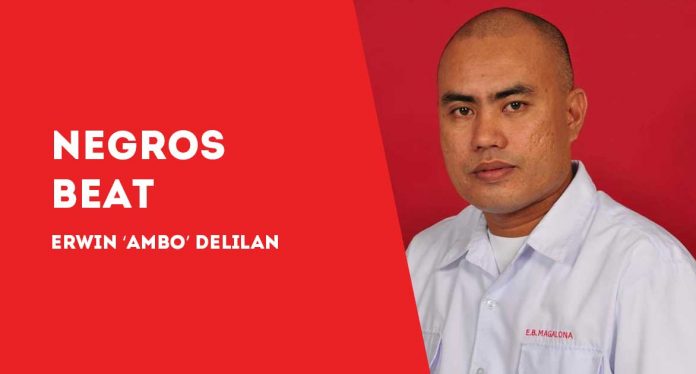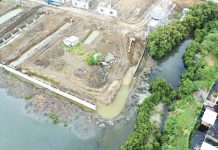
THE STATE of the shabu trade in Bacolod City has reached alarming levels. Even the influential Metro Bacolod Chamber of Commerce has expressed grave concern over the frequent drug raids occurring almost weekly across the city.
What’s even more disturbing is the Bacolod City Police Office’s (BCPO) 2024 annual report on shabu confiscations. According to the report, a staggering 13,784.739 grams of suspected shabu were seized from January to December 2024, with an estimated street value of P93.736 million.
Of this total, P77 million worth of shabu was confiscated in just five months, from August 2024 to January 3, 2025.
BCPO director Colonel Joeresty Coronica has candidly admitted that the shabu trade in the “City of Smiles” remains relentless. He identified several factors contributing to its persistence, the most significant being the high demand for the drug.
Coronica explained that the police are primarily limited to conducting buy-bust operations, which target only the supply side of the drug problem. While these efforts are crucial, they merely scratch the surface of what is clearly a much deeper issue.
‘BUGAL’ AND ‘TIKAL’
Another factor contributing to the thriving shabu trade in Bacolod is the so-called “haciendero culture,” which fosters a sense of pride and ostentation often associated with a socialite lifestyle.
This culture, with its allure of extravagance, tempts many young people in Bacolod to indulge in high-grade vices like shabu.
It has been further romanticized by the popular tagline, “Sa Negros, ang kwarta gina-piko kag gina-pala” (In Negros, money is gathered by spade and pickaxe), symbolizing the region’s reputation for wealth and abundance.
To counter the negative influence of this “haciendero culture,” Colonel Coronica emphasized the importance of strong family ties and a supportive system from schools and other institutions. He stressed that instilling in children the understanding that illegal drugs, particularly shabu, are detrimental to their future is crucial in the fight against this pervasive problem.
‘FAISAL’
Meanwhile, Colonel Coronica highlighted another alarming factor: remnants of shabu syndicates are still active in Bacolod. While the Caunda drug ring has been neutralized, its remnants appear to be regrouping, he noted.
One notable case involved the arrest of a fitness instructor who identified himself as “Faisal,” a 24-year-old claiming to be a Muslim. Faisal was apprehended during a buy-bust operation in Purok Nami-Nami, Barangay Sum-ag, Bacolod, on December 12, 2024. Authorities seized suspected shabu worth P4.6 million during the operation.
The Muslim community in Barangay 31, where Faisal claimed to reside, was reportedly shocked by the news. Police intelligence later revealed that Faisal was a remnant of the Caunda drug ring and had assumed the role of a sub-leader in the group.
What’s more alarming, Coronica shared, was that Faisal brazenly offered a P1 million monthly “payola” to key officials of the BCPO in exchange for his freedom.
Fortunately, Coronica and his team stood their ground and rejected the offer. “I won’t gamble my future,” Coronica stated, emphasizing his commitment to integrity.
Such resolve is truly commendable. My salute to Colonel Coronica and his unwavering stance against corruption.
CRIME MAP & CLOCK
Frank Carbon, chief executive oOfficer of the Metro Bacolod Chamber of Commerce and Industry (MBCCI), revealed that the city’s Police Advisory Council, of which he is a member, has requested the Bacolod City Police Office (BCPO) to provide a detailed crime map and crime clock.
The crime map is intended to pinpoint specific locations in Bacolod where shabu selling is most rampant, while the crime clock will identify the times of day when shabu transactions are most active.
Carbon explained that these tools would be invaluable in identifying which of Bacolod’s 61 barangays have a thriving shabu trade and where petty and organized crimes are most prevalent.
With this data, the Police Advisory Council can recommend targeted interventions to the city government, such as focusing on providing ayuda (assistance) or livelihood projects in affected areas. These efforts aim to combat poverty, which is often closely linked to the proliferation of the shabu trade.
LUCRATIVE STILL
In sum, the shabu trade in Bacolod remains a lucrative and persistent problem. Syndicates continue to adapt their tactics to ensure their operations thrive, with the city’s young and adventurous population serving as a captive market.
Mayor Albee Benitez pledged to rid Bacolod of the “dirt and filth” of shabu as part of his 8-Point Agenda upon assuming office on June 30, 2022. However, the 2024 Accomplishment Report from the Bacolod City Police Office (BCPO) on anti-illegal drug operations suggests that this promise has yet to be fully realized.
Now, Colonel Coronica is calling for a concerted effort among community stakeholders to combat the shabu trade effectively. While the police can focus on reducing the supply, Coronica emphasized the critical need to address the demand side of the equation. The question remains: who will take full responsibility for curbing the demand?/PN







